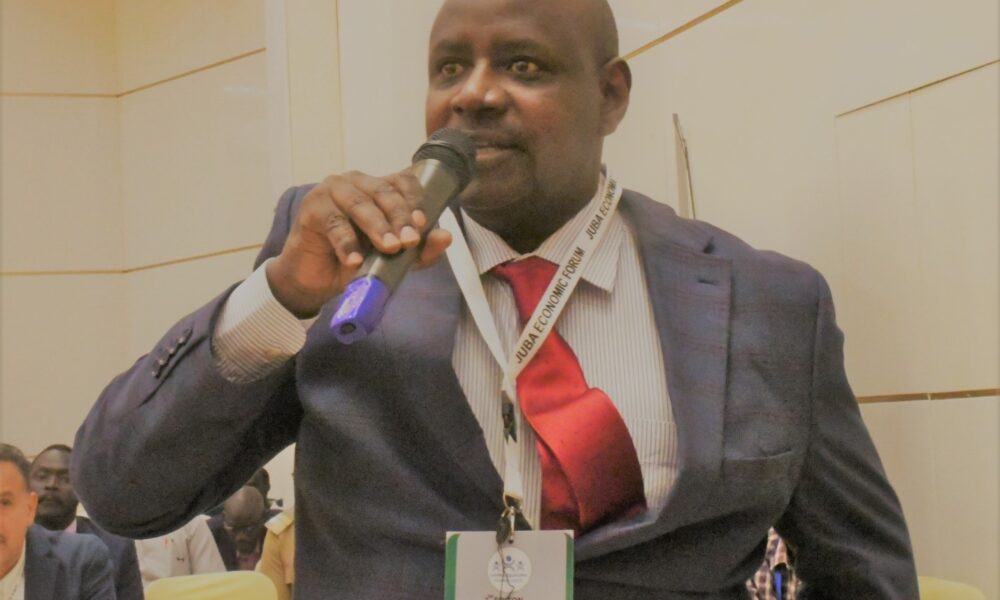By Bida Elly David
East African Business Council (EABC) urges South Sudan government to consider extending validity period of investment certificates to a decade in order to foster a thriving economy.
This concern was raised on the 3rd day of Central Equatoria Business Union’s Juba Economic Forum, on Wednesday.
John Bosco, Chairperson of EABC said renewing investment certificates annually is costly.
“There is nowhere a country renews an investment certificate every year; the renewal in South Sudan costs 1,000 United States dollars,” decried Bosco.
He urged the government to build confidence in the investment system.
“We need to build confidence in our systems, processes, and applications; foreign investors should be given at least 10 years to renew that certificate,” he appealed.
“It sends a negative signal to anyone who wants to invest in this country; let us remove that $1,000 because it is a costly investment,” he advised.
Mr. Bosco urged the government to have a long-term vision of mending the country’s economy by creating a conducive environment for foreign investments.
In response to the appeal, Dhieu Mathok Diing, the minister of investment, challenged the foreign investors’ argument, saying it wouldn’t work.
“We cannot extend any renewal period; this is the law that is guaranteed in the Investment Act; leave it if you want; is it a necessity for the government to renew? I think no,” he reacted.
Minister Dhieu challenged the investor for the call, saying the yearly charges against renewal of their licence are so little compared to the profit they make in the country.
“Paying those renewal fees means these investors are getting money; that money out of the millions of dollars you are getting in South Sudan is nothing,” he rebutted.
The investment minister stated that it is not easy to implement the investor’s call, saying it will also require the investment act to undergo serious amendments through parliament.
Meanwhile, Charles Achaye, a national investor, disagreed with the EABC’s complaint, saying South Sudanese are denied making payments in order to purchase goods from overseas.
“We South Sudan investors are facing currency rejection and payment while wanting to import goods from outside countries,” he testified.
He said there are quite a number of countries rejecting payments from South Sudan investors on account of political sanctions and money laundering.
“This is spoiling the reputation of our country through Kenya or Uganda for your goods to be shipped to South Sudan; those partaking in the currency rejection are mainly the European and Asian countries,” he stated.




